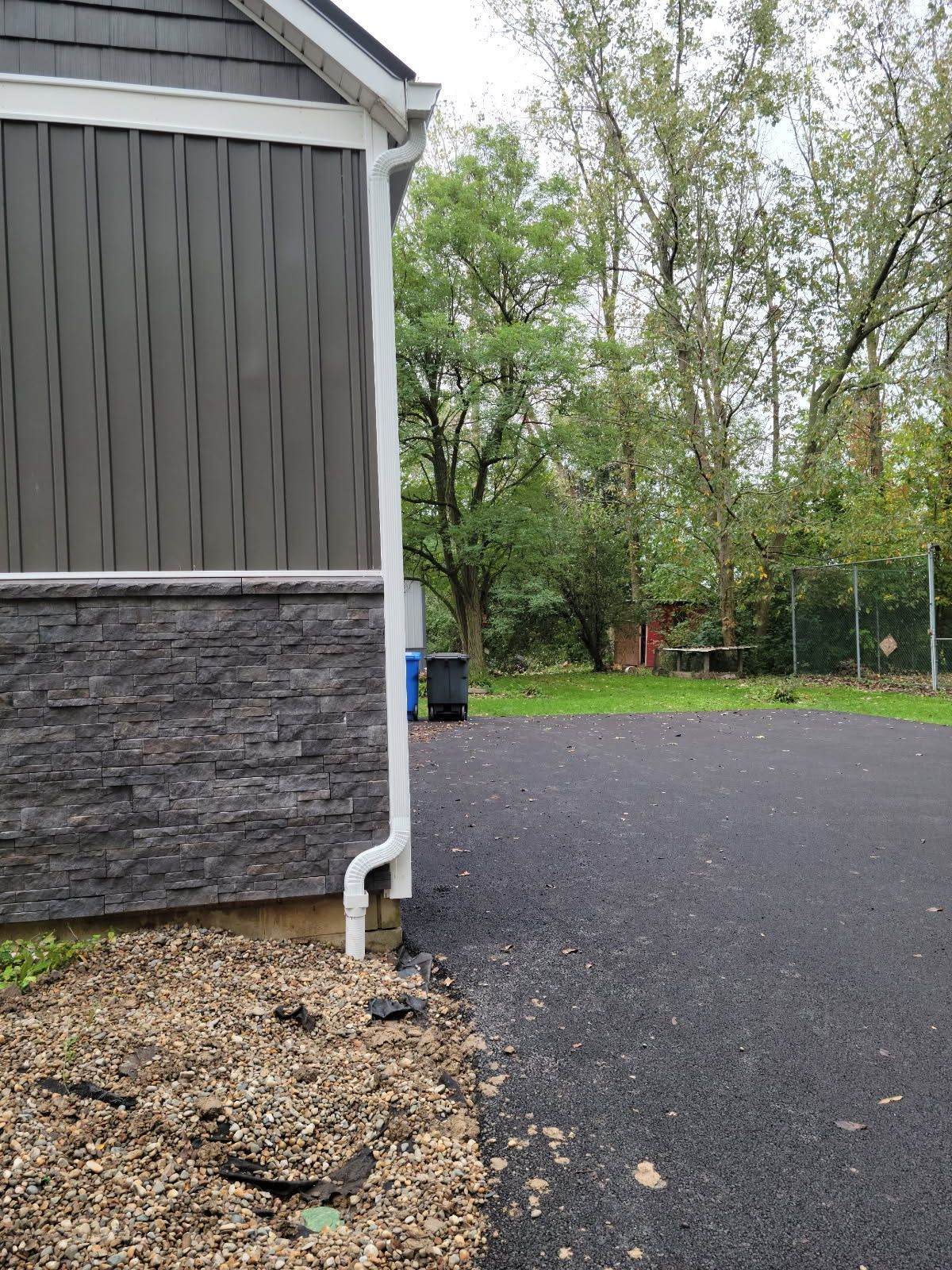Downspout Installation and Repair Services in Tiffin, OH
A gutter system is only as effective as its downspouts. These vertical drainage pipes carry rainwater away from your roof and safely divert it from your home’s foundation. Rain Drainers provides complete downspout installation and repair services in Tiffin, OH, and across Bellevue, Fostoria, and Findlay. Whether you're building a new drainage system, replacing damaged parts, or fixing issues with water flow, properly installed and maintained downspouts are key to protecting your property.
The Role of Downspouts in Gutter Systems
Downspouts serve as the exit point for water collected by gutters. Once rainwater travels along the roofline and enters the gutter channel, it needs a reliable path to reach the ground without causing splashback or erosion. Downspouts direct water through the vertical piping and release it at a safe distance from the home’s foundation, basement walls, or landscaping.
An undersized, clogged, or poorly positioned downspout can cause water to back up into the gutter, overflow onto the siding, or pool near the building. These issues often result in costly damage, mold, and erosion if not addressed.
Downspout Installation Options
Rain Drainers installs a variety of downspout configurations based on roof pitch, home layout, and drainage requirements. Each installation is tailored to ensure efficient water flow and structural stability.
Standard Vertical Downspouts
The most common configuration, extending straight from the gutter outlet to ground level. These are fitted with elbows and splash blocks to direct water away from the base of the home.
Rain Drainers ensures that each downspout is properly sealed at its connection point with the gutter and anchored securely along the exterior wall.
Common Downspout Issues and Repairs
Over time, downspouts can suffer damage from physical impact, corrosion, or clogging. Rain Drainers addresses a range of issues through targeted repairs or part replacements.
Loose or Detached Downspouts
Often caused by rusted screws, high winds, or settling. These are re-secured with new brackets or re-anchored to masonry as needed.
Clogged Downspouts
Internal blockages from leaves, dirt, or nesting pests prevent water flow and lead to backup. The interior is flushed, and debris is removed to restore function.
Leaking Joints or Seams
Downspout sections may develop small leaks where pieces connect. These areas are resealed or replaced with seamless pipe sections.
Crushed or Bent Sections
Physical damage from ladders, equipment, or weather can collapse the pipe. Affected sections are cut out and replaced.
Improper Slope or Alignment
Downspouts that direct water too close to the house or uphill are reconfigured for proper redirection.
In all cases, Rain Drainers evaluates the issue carefully and makes repairs using matching materials and components for a consistent appearance and function.
Downspout Materials and Sizes
Most downspouts installed by Rain Drainers are made of aluminum due to its lightweight, rust-resistant properties. However, copper and galvanized steel options are also available for custom projects or aesthetic preferences.
Standard sizes include 2"x3" and 3"x4" rectangular options for residential systems. Larger or round downspouts may be used for commercial applications or homes with high water volume from steep roofs.
Color matching is offered to ensure seamless integration with the gutter system and home exterior.
Downspout Maintenance and Seasonal Needs
While downspouts are generally low-maintenance, regular inspection ensures continued performance. Seasonal cleanings—especially in fall and spring—help prevent buildup that can cause overflow.
In winter, ice buildup at the base of downspouts or within buried extensions can cause blockages. Rain Drainers advises homeowners to keep downspout outlets clear and to consider accessories like heated cables or ice guards if winter backup is a recurring problem.
Splash blocks or downspout extensions should also be checked periodically to make sure they are securely positioned and not contributing to pooling near the foundation.






